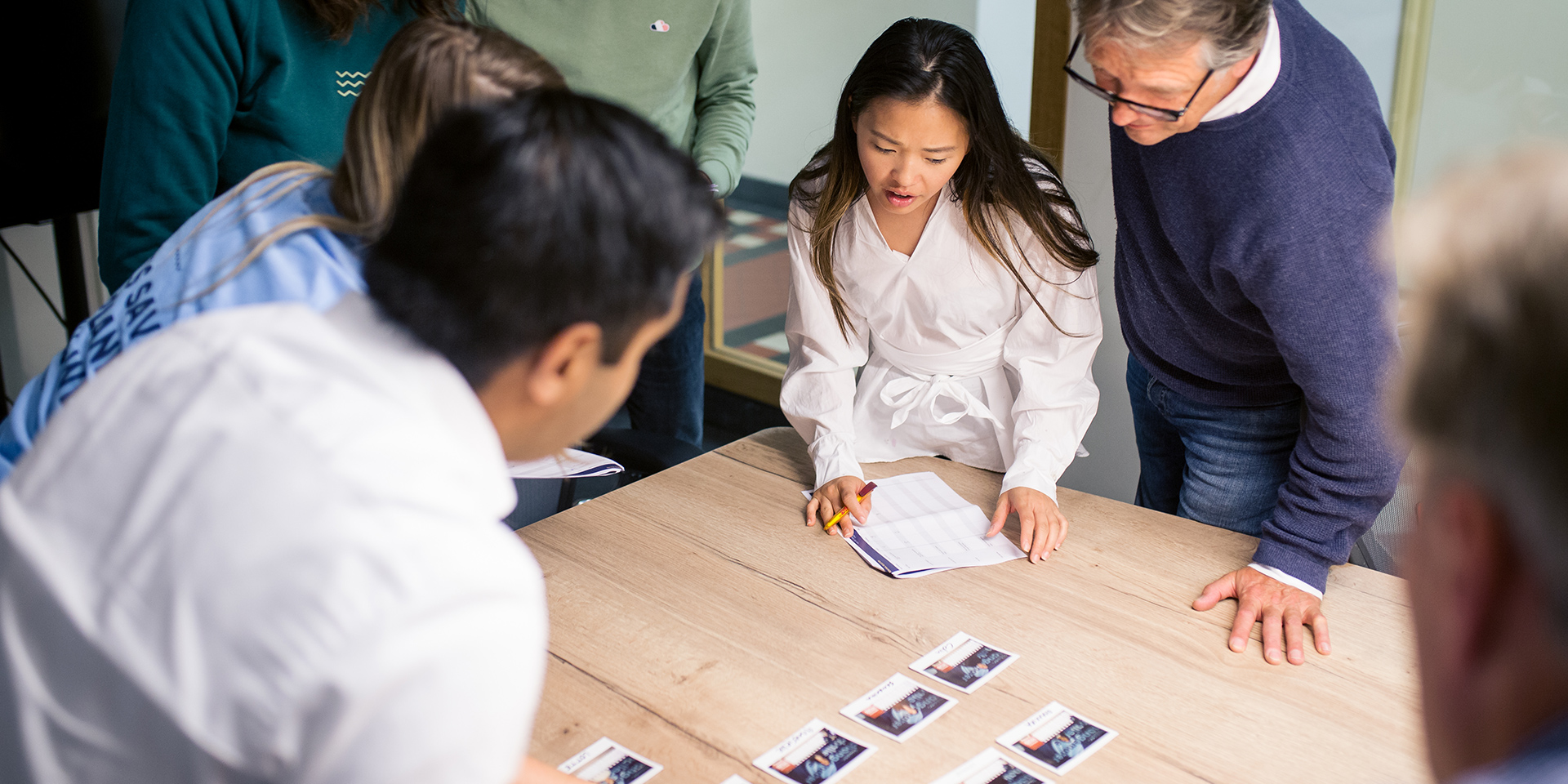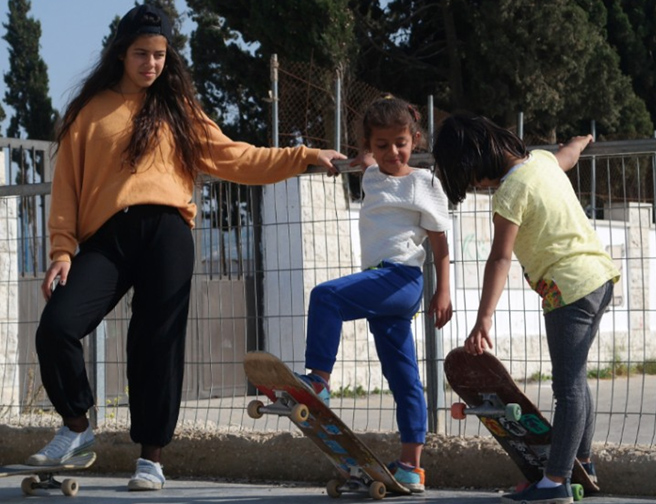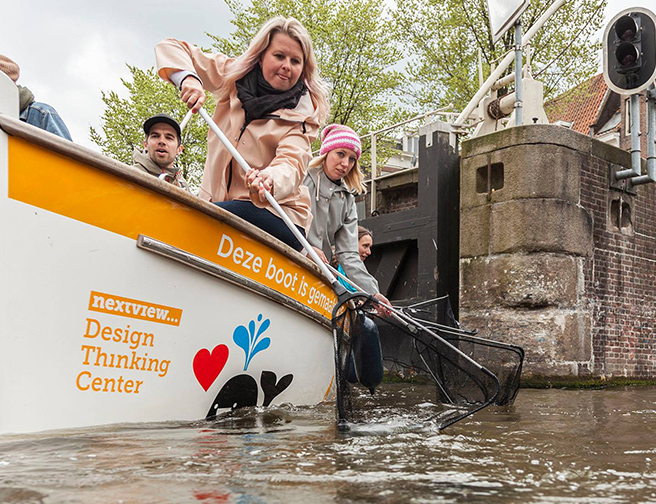Learning about the dance between policy, politics and practice
This article is a personal and collaborative reflection piece on the process and learnings of this Societal Renewal Lab, as convenors of this workshop. It is our observation that the Lab – being a participatory and co-creative process – was in itself a small contributor to societal renewal through offering a space for authentic dialogue and listening and in building trust between civil servants and social entrepreneurs.
Thank you for all who participated and so openly shared experiences and insights.

We are all too familiar with the issues facing our society today, as even affluent cities experience increasing socio-economic pressures and the dwindling patience of their constituents. While governments are challenged, social entrepreneurs are rising to the challenge – turning problems into propositions and experimenting with new ways forward in health, education, manufacturing, energy, currency, and food, to name just a few of the areas of innovation emerging in this growing sector. At the base of it civil servants, politicians and social entrepreneurs have a shared purpose: the betterment of society. However, there are a number of constraints that discourage authentic collaboration between these parties including outdated policies, lack of resources, differences in speed and language but most of all ‘paradigms of change’ that are at odds with each other.
Paradigms at Odds
The conversation in this Lab was full of paradoxes: bottom-up vs. top-down, slow down vs. speed up, agile vs. bureaucratic. Ultimately, the tension can be summed up as the dance between policy, politics and practice. Which leads to which more effectively? And do we have time to wait for the right policies to drive the right action, or do we need to dive a little deeper into our moral compass – and across the organisational politics – to find alignment as changemakers with shared purpose?
A storytelling session revealed a shared yearning for this “new society” – one that is made healthy by embracing new perspectives, encouraging intercultural communities, and building bridges across perspectives and cultures. We found in common the wish to inhabit a place that exists beyond the barriers and problems, knowing that this place first needs to come to exist in our minds. We recognised the consciousness trend within companies and among the youth, all searching for the life skills that are relevant in today’s shifting times. We spoke of the invisibility of un- and under- employment as it diminishes peoples’ livelihoods (and their self-confidence as contributing citizens). When a generation of children are raised by parents unemployed, we realise we need more than a quick fix to turn around this decline. How can we generate energy to move forward when people’s passions are crushed? And, how do we create environments to engage people who no longer want to be engaged?
Perhaps the very first step is in understanding how to invite people to help create their own solutions, and to remind ourselves that participatory work requires empathy. Just tolerance is no longer sufficient. To move forward more collaboratively as changemakers in and outside the public sphere, we collectively identified two key leverage points:
- the need to create enabling environments where failure becomes learning; and,
- the need to move from a welfare state to a participation society.
Creating Enabling Environments: Reframing Failure
What are we, as societal changemakers, still looking for? This Lab’s emerging wishlist was a clearly shared one: better collaboration between existing actors, policies that incentivise experimentation, an ongoing “lab” environment, new business models, spreading of success stories, more true demand for innovation in society, and opportunities for replication to enable solutions to move more easily to where they are needed. To achieve this, there was a call for three key enablers:
- Translation tools to enable understanding not only across diverse languages or cultures but across diverse mindsets at play
- Agile policy-making to enable practical responsiveness to ever-changing times and also offer a recognition of the need for more emergent ways of dealing with the complexity of interconnectivity at many levels
- The space and time to tackle social problems at their core: to enable playful experimentation and recognise that new ways forward may emerge unexpectedly from processes that are allowed to move at their own pace
Ecosystems of diverse players are needed. Social entrepreneurs and governments speak a different language yet understanding each other is essential to achieve social innovation. And other stakeholders need to invest as well in re-stitching the fabric of society so that we may all thrive. Storytelling is an important tool to connect in new ways, supporting meaning-making when words fail to translate across paradigms. One might say storytelling is what weaves shared understanding between diverse players in a city. This weaving connects implicit and explicit parts of the ecosystem that is the natural habitat of these players. Ecosystems provide right conditions and safe spaces to test social initiatives and grow resilience. In a society that aims to get everything right so quickly and so rationally, we fail to allow sufficient space where many initiatives may be tested – and even fail. Perhaps we may even learn better from that failure if we embrace it. In a values-based society, one cannot quantify everything. So how do we evaluate and report progress when societal change is non-linear?
More specifically, we need experiments to practice with new tools of collaboration and test new mechanisms for financing this societal innovation. How can we restructure public spending and knowledge in order to facilitate social entrepreneurs? For example, the social initiative IMC Weekendschool is offering additional education for troubled students during the weekends. The additional investment in supporting troubled students will make a positive impact at the individual level (the students), societal level (cities) and national level (less overall crime and health care costs). How do we finance and reward the IMC Weekendschool for these societal benefits? Should we trust philanthropy as we currently do, or should we invest more public funding if they create more impact than other, regular, schools?

From Welfare State to a Participatory Society
A new role and associated tasks for government was a topic of conversation, supporting a wish to move from a welfare state to a participatory society. The social safety net has been held for some time in this country but government has been shifting and we see more and more of where it falls short and is being compensated for by neighbours and relatives. More recently, this shifting space is one in which enterprising citizens are designing and performing public duties being previously delivered by government. Two challenges are present in this:
- It is a challenge to the new social entrepreneurs and those inhabiting government at this time to work together. First, to integrate the different ambitions, values and cultures of societal entrepreneurs and civil servants and then to be aligned in the acceptance, timing and implementation of solutions.
- The shift from public service dependency to social enterprise as a provider is a relatively unspoken agreement; there has been little if any negotiation on the transition plan and resourcing for that. And with this ambiguity, differing expectations of each other take root.
As social enterprises are relatively new, we are searching for a definition and an understanding of the boundaries of this emerging sector. Governments, universities and other public institutions are seeking for how they (should) relate to social enterprises. Questions arise, for example: can you be employed by a university to set up a social enterprise?
As we sought to better understand the opportunity we have, the Lab’s break-out groups delivered some suggestions for creating a more enabling environment for more widespread engagement in societal renewal, beyond government:
- ensuring that there is time and effort on opportunity finding and naming
- increasing awareness of already existing solutions so that they can be replicated (EU FP7 Project BENISI tracks 300 of these across Europe)
- fostering dialogue between different sectors on shared issues to be solved
- bringing unusual suspects together for more generative thinking and bridging gaps
- balancing the need for longer term thinking with more rapid prototyping
- a demand for more business modelling support for social initiatives so they have a better chance to be enduring initiatives
- ambition to communicate the social value created by citizens formally and informally
It was clear that we need to move away from the dichotomy of top-down vs. bottom-up and understand that participation means together. Several patterns became evident in the course of the day’s interaction, and were made more visible in the final harvest. They had to do primarily about the kind of collaboration experienced in the room and needed (also wanted) between government and social entrepreneurs “out there”. A collaboration that is not really about funding but about relationship. Two patterns worth naming have possible flipsides of the same coin, trust and risk.

We were struck by the issue of trust in the meeting. On the side of the social entrepreneur it was obvious that trust plays a significant and vital role in his/her work: being close to and to be trusted by others in social interaction (e.g. for people that need care) has been mentioned. This collided with the institutional trust that is required in public procurement. An officer in public administration by far prefers to work with a bigger institution that can take full responsibility for all sorts of social contracts; the bigger the better, less work, less risky, easier to control and manage. It was obvious that any form of distancing from this idea requires courage and political back-up, and ultimately a shared desire to shift it. Here we can see space for the kind of experimentation that has been mentioned throughout the day.
The perception of ‘what is risk’ surfaced with a shared realisation that even if we think we are speaking about risk in the same way when we share an intent to do something meaningful in society, the perceived ease (or difficulty) to move through this threshold by either party is actually quite far apart. Social entrepreneurs embrace risk as a challenge, sometimes playfully, and often have little to lose. Government players perceive risk as scary and are set up to avoid it unnecessarily. Even just speaking about this difference in perceiving and working with risk appeared to be a welcome relief to the group.
In the day’s closing, participants had a chance to speak to what they were taking from the experience and most referred to the surprising experience of building connection and trust in such a short time, and particularly spoke to the quality of the participants and ease in which each could bring their insights and opinions. As convenors and organisers, we credit the quality of the implicit and explicit outcomes to the choice of deliberate attention to a personal invitation process and intentional participatory design of the Lab.
In Summary: Reflection & Follow-through
The participants valued the opportunity to dive into dialogue with those who hold other perspectives yet work with an intent for similar impact towards a better society. Informal remarks spoke to the value of having some time with each other without (hidden) agendas, to try to understand the different worlds we are working in and find some bridges to create an enabling environment for social enterprises – starting by connecting as human beings beyond job titles. One of the ways we can both create and become an enabling environment is to invest in becoming a self-aware ecosystem where civil servants and social entrepreneurs can together experiment, learn, prototype and scale innovative approaches to deal with our societal challenges. Our ambition is to foster more dialogues between civil servants and social entrepreneurs to find more such bridges so we can address societal challenges even better than we are doing today. There was a clear call for future such opportunities – future such “labs” – to continue to engage and learn from each other in a healthy and interactive environment. As one participant put it, “It is by experiencing an enabling environment ourselves that we are all better equipped to offer them in our own contexts.”
In spite of the overwhelming challenges, there is growing evidence of socially entrepreneurial citizens trying their hands at finding solutions for the issues they see in their cities – be they informal initiatives driven largely by passion or more formalised social enterprises that have the ambition to scale. This will become more and more obvious as public sector resources are curtailed and need to be re-prioritised. And as this big shift reconfigures the dynamics of societal services and societal evolution, we expect both the governmental and social enterprise sectors will continue to be inquiring into their individual and complementary roles.
Co-authored by
Tatiana Glad is a social entrepreneur, sustainability practitioner and change strategist. She works across sectors and cultures; her work centres around creating structures and programs for entrepreneurs and intrapreneurs to collaborate in creating a healthier society and economy. Tatiana is co-founder and director of Impact Hub the Netherlands, co-host of the Impact Hub EU Cluster, and co-founder of Waterlution. Tatiana holds a MSc in Responsibility & Business Practice and a dual degree in International Business & Entrepreneurship, and is a steward of the Art of Hosting.
Rense Bos is a practitioner and societal entrepreneur in the public sector; co-founder of Publieke Versnellers. He designs, coordinates and facilitates processes, projects, concepts and meetings. The question that drives him is how we can invent smarter solutions for large and small societal problems. The starting point in this quest: the use of local knowledge, strength and skills of people. As a schooled public administrator Rense has a fascination for many (international) dimensions of public administration. He is affiliated with the International Association of Public Participation (IAP2) to keep abreast of the latest international best practices and trends in the field of co-creation.
Roel During is a researcher on social innovation and cultural heritage based out of the research institute Alterra at Wageningen University. He brings a background in spatial planning and cultural history to his exploration of public policy making through interdisciplinary scientific research as it addresses the needs of the so called participation society. he is currently engaged in EFESEIIS, a research project funded by EU FP7 that responds to the challenges identified in Europe 2020 Strategy for Smart, Sustainable and Inclusive Growth and HORIZON 2020 in order to contribute to inclusive, innovative and secure societies.
